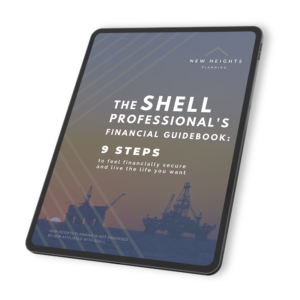Health Insurance Comparison
Health Insurance Comparison
Full Transcript:
I’ve always been in the same health insurance plan, but now I have access to a high deductible health plan. What’s the difference?
In my last video, I talked about how powerful an HSA is, but mentioned you only have access to it if you’re on a high deductible health plan. Many people at Shell are on the PPO, which stands for preferred provider organization. Let’s break down the difference between the two plans.
With the PPO, you have a higher monthly premium. Then with the high deductible health plan. If you have an individual coverage, this difference is just over $300, and that difference is greater if you’re on a couple or a family plan.
Now, both insurance plans have a savings account component, but they’re very different. The PPO has an FSA or a flexible spending account. This is a use it or lose it account. So make sure you are not overfunding it each year. The high deductible health plan has an HSA or a health savings account. In the last video, I talked about how powerful this is and how the tax benefits on it are phenomenal. Now, of course, with the PPO, Shell is not putting any money into an HSA for you as you don’t have access to one. Whereas with a high deductible health plan, Shell will put $500 into it if it’s individual coverage or $1,000 if you are in a couple or a family coverage.
Now, at this point, you’re saying, hey, this high deductible health plan looks awesome. I’m paying a lower premium, and Shell gives me money to boot. What’s the downside? So there are some tradeoffs. Let’s talk about what happens when you use the insurance.
Everything in this video, we’re going to assume that you’re going to in-network providers. Both of these have the same network of doctors, and it’s important that you use them as the insurance coverage is much better when going in network.
Now a deductible, similar to your auto insurance, is how much money you have to pay before the insurance kicks in. The difference with health insurance, your deductible is on an annual basis, not a per-event basis. So the PPO, you have a $325 deductible per person or $650 per family. Now, with the health plan, of course, you have a higher deductible. Hence the name. The deductible is $1,600 per person or $3,200 per family.
Now, let’s talk about using it after you hit your deductible. Your cost for medical care with the PPO depends on each service, but generally has a co-pay. A co-pay means you pay a flat amount when you have that service done. So when you go to an office visit, it’s $30. Or when you go to a specialist, that’s $50. With the high deductible health plan, instead of having a co-pay, for most things, you have co-insurance, which means you pay a percentage of the cost. If you go to an office visit on the high deductible health plan, you pay 10% of the cost of that visit or 20% of the cost for a specialist.
Now, let’s talk about what happens if you’re using this insurance a lot. You may hit the out-of-pocket maximum. This is a combination of your deductible and your co-pay or co-insurance. For the PPO, your out-of-pocket maximum per person is $3,500, with a family out-of-pocket maximum of $7,000. With the high deductible health plan, you have a higher out-of-pocket maximum, with it being $5,000 per person and $10,000 per family. So you’re taking on $1,500 to $3000 more risk with the high deductible health plan versus the PPO. But that risk is being offset by Shell’s contribution and the premium to an extent.
So which one is right for you? Well, if you expect to have higher medical expenses, if you hate paying medical bills, and if you’re risk-averse, the PPO is probably a better option. Now, if you expect to have lower medical expenses, you hate paying taxes, and have the ability to fully fund an HSAand you’re okay taking on some risk, you may want to choose the high deductible health plan.
Health insurance is complex. If you have any questions regarding your own individual situation, please reach out to me by sending me a note or giving me a call.



